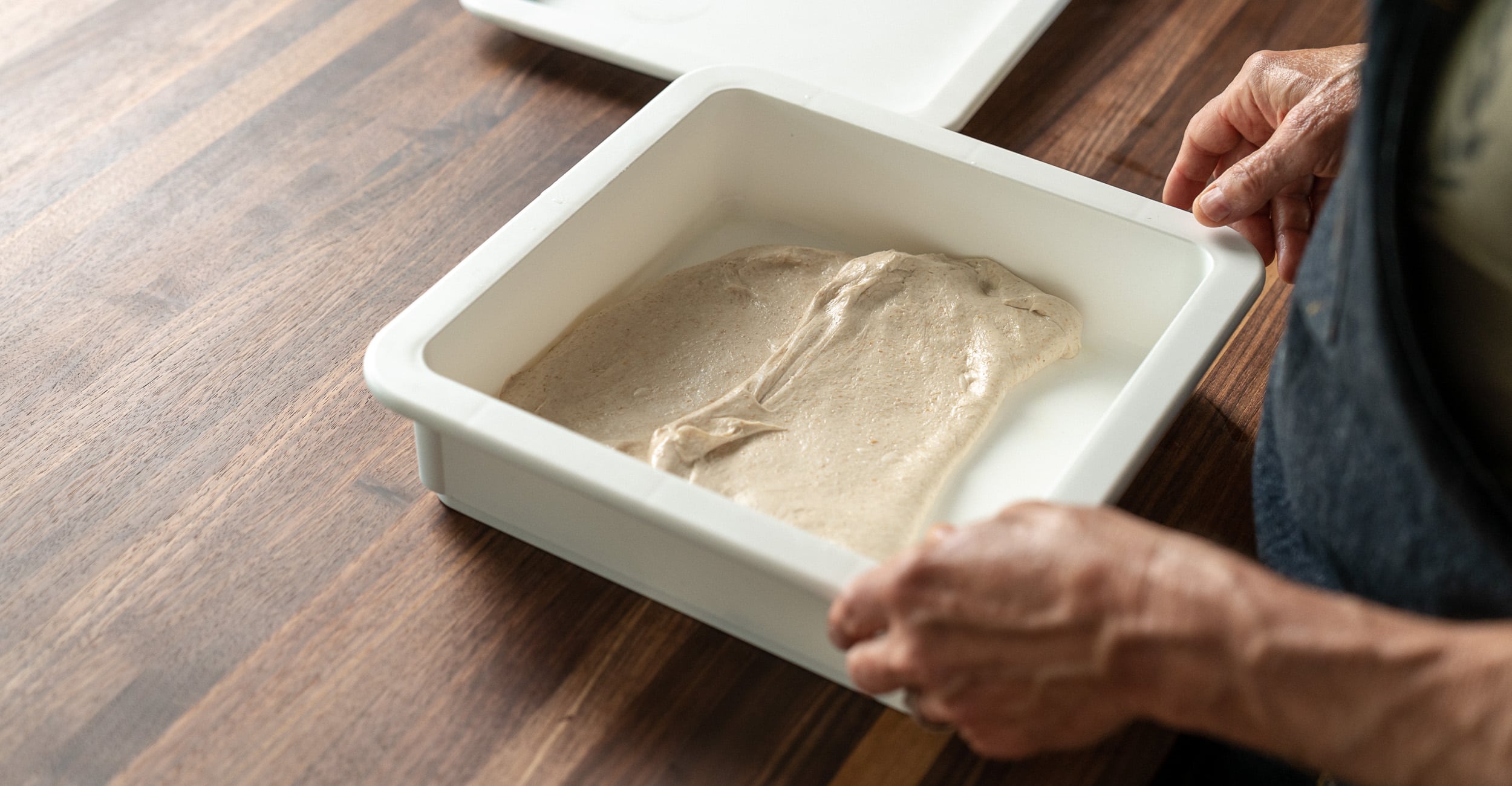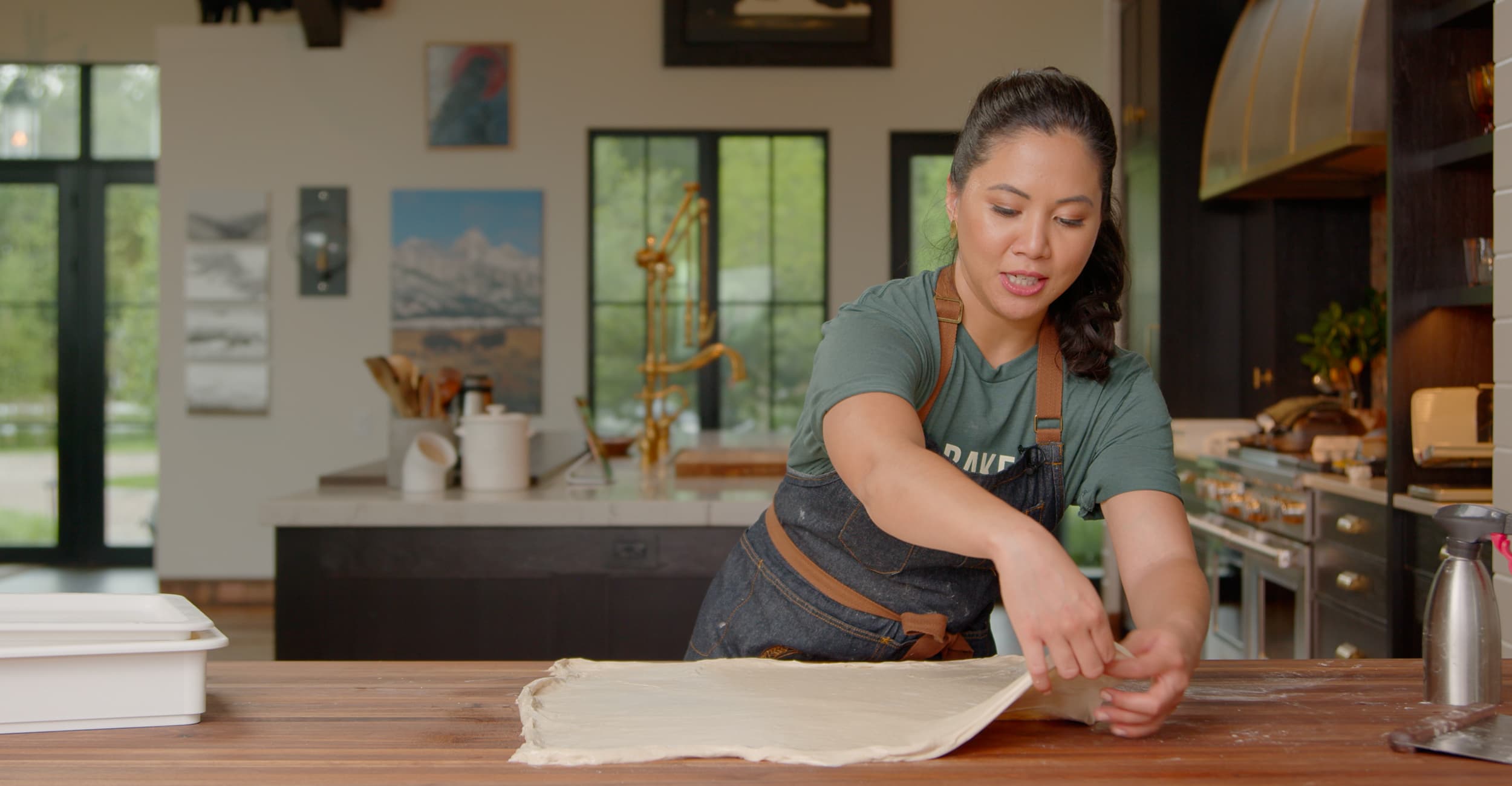
Boule Shaping
After your loaf has rested from the pre-shape step, it is ready for its final shape before the cold proof in the fridge! A boule, meaning “ball”, is a round shaped loaf. Shaping a boule is very similar to the pre-shaping technique covered in our pre-shaping technique lesson.
Table of Contents
- 8-inch round banneton with liner
- Bench knife
- Flour for dusting
Related Posts
Scoring Tools and Technique
Boule Scoring
Spotting Scoring Mistakes
Please email us at
techniques@challengerbreadware.com with your
comments and questions.
Why do we shape?
The final shape
Start by lightly flouring the top of your pre-shaped and rested dough, then using a bench knife, flip it upside down so the unfloured bottom is now facing up. Starting with the bottom portion of the dough, fold it up into the center, pressing gently to seal. Repeat with the top portion, and then the sides. All edges of your dough should now be folded into the center.
Now, gently flip over your dough. Remember the technique you used for pre-shaping your dough? Great! That is exactly what you are going to do again here. With your bench knife partially underneath the dough and your free hand to guide, push your boule away from you, rotate the bench scraper 90 degrees, and then bring it back towards you. The motion should be like a “U-turn”.
Repeat this motion until your boule is smooth, taut, and rounded. Remember not to over-shape your boule! Tearing and ropeyness are signs that you have gone too far in your shaping. If this happens, allow the dough to bench rest for 20 minutes before resuming.
Load your banneton
Once your boule is shaped, sprinkle your banneton with some flour to prevent sticking. Using your bench knife, lift the boule, and invert it into the basket so the seam side is facing up.
If your seam starts opening up, simply pinch it back together to maintain the tension you just worked so hard for.
After your loaf has been loaded into its banneton, it’s time for it to enter the proofing stage, which is the final rise before scoring and baking.
What do you do when you want enhanced flavor and texture in your bakes, but don’t have a sourdough starter ready to go? Make a poolish!
- Feb 08, 2023
- 2 min read
The 10” fold is our own, Jim Challenger’s simple way to build gluten from inside the Proofing Box.
- Mar 20, 2023
- 2 min read + video
The lamination method is a way to build strength and structure in dough.
- Mar 20, 2023
- 2 min read + video



